15 Points Seafarers Should Consider For Successful MLC, 2006 Survey
Maritime labour convention (MLC-2006), which came in to force on the 20th august 2013, is a mandatory certificate for almost all types of vessels now. Every ship of 500 GT or above and operating internationally needs to have the Maritime Labour Certificate and Declaration of Maritime Labour Compliance.
For ship’s staff facing MLC,2006 survey for the first time, this article will help to prepare for and face the survey successfully.
However, it is to note that MLC-2006 is for the protection and better safety and welfare of seafarers, and therefore the preparation and inspection of the survey should be ethical to point out sub-standard vessels and companies.
Mentioned below are few important points to consider before requesting a surveyor onboard for inspection.
1. Ensure DMLC-part-1 and DMLC-part-2 Are Always Present On Board: Make sure the Declaration of Maritime labour convention-2006, DMLC-part-1 and DMLC-part-2 are signed by the company’s Designated Person Ashore (DPA) or manager and are retained onboard. These two documents are extremely important for the inspection. DMLC certificates must be present on board all the time.
Download: MLC Part I and Part II Declarations (Draft) (Credit: Government of Malta)
DMLC-Part 1 is to be completed by the attending surveyor and will identify the topics for inspection, and list the relevant pieces of legislation implementing the MLC, 2006 together with any substantial equivalents and exceptions that have been granted.
DMLC-Part 2 has to be completed by the ship owner and verified by the attending surveyor when the first inspection is completed. It details the measures adopted by the shipowner to ensure ongoing compliance with the national requirements.
A copy of DMLC must be posted at a place on board which is accessible to all seafarers.
2. Ensure Crew is Provided with Onboard Complaint Procedure: Crew complaint procedure, which includes record of crew complaints, to be maintained on board. Complaint procedure guide, with port state and flag state address, also to be displayed where applicable and should be available for crew. Seafarers should have the right to lodge a complaint directly with the master and also with appropriate external authorities when necessary.
Download: Sample of Onboard Complaint Procedure
3. Ensure Signed Copy Of Seafarer Employment Certificate is Provided to All Seafarers: Seafarer employment agreement (SEA), SEA should be in accordance with MLC 2006. Break down of wages, deductions in wages, extension clause in case of a crew extending his/her contract, collective bargaining agreement (CBA), crew complaint procedure etc. are to be mentioned properly as these are main areas where SEA can be asked to be revised.
Download: Sample of Seafarer’s Employment Certificate
4. Collective Bargain Agreement Must Be Available On board: Collective Bargain Agreement (Usually exists between shipowner and national seafarers’ union/ITF) is one of the most important documents which has to be retained onboard and should be available to all crew mentioned on SEA.
This is the document which details all the terms and conditions of the crew employed on the ship. It specifies entitlements such as pay (in the form of a wage scale), working hours, etc.
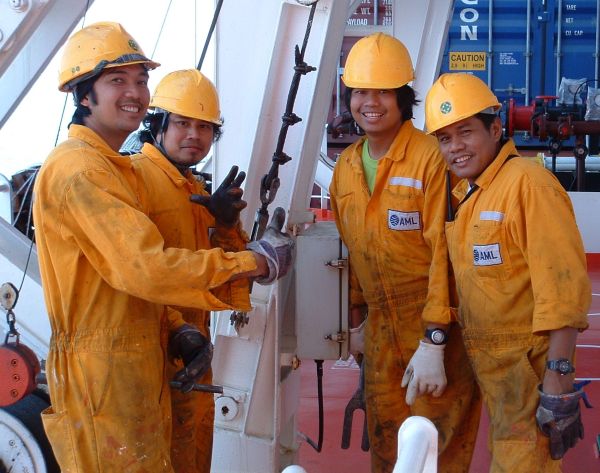
5. Rest Hours Record Should Be Properly Maintained: Rest Hours, record of rest hour period should be properly maintained onboard as recommended by the flag state. Care should be taken while filling the rest hour period form and all personnel should have minimum of 10 hrs rest period in a day and 77 hrs rest period on a week. The 10 hours rest period per day can be divided in to two periods – one of which should be at least 6 hours continuous period of rest. For a person less than 18 years of age, night watch or other duties at night is not allowed.
The rest hour form should be as per flag state format. Work Schedule and watch-keeping schedule should be maintained and displayed on notice boards. This document should have information of watch keeping while at sea and port and should also state non-watch keeping duties carried out, and hours of rest period.
Download: Sample of Record of Rest Hours
6. Maintain Record of Wage Bills Properly: Record of Wage Bill for every month should be maintained and Wage Slips should be readily available with all crew in time of inspection. Both wage bill and wage slip should quote salary breakdown, tax and other deductions if applicable.
7. Mess Committee Records- As per MLC-2006 every vessel should have a mess committee on-board and meetings are to be conducted on regular intervals for crew suggestions and improvement of food prepared. Record should be maintained of such meetings. Records of safety committee, although this is a common document on every company’s ISM plan, should be available for the inspection of surveyor.
8. Ensure Certificates of qualification and training of cooks and catering staff is ready: Cook qualification, MLC suggests that person who is designated as cook onboard, should be a person who is qualified as cook from a recognised institute and should hold a Certificate of competency as cook and flag state endorsement should be available for the same. The inspector often checks the qualification certificates of the cook.
9. All Crew Qualification and Documents Must Be Available for Inspection – According to MLC, all crew members working onboard should be qualified and have all official documents as per STCW, flag state endorsements and equivalents. The minimum age limit for a person to work on board as per MLC-2006 is Sixteen years. Ensure all the certificates are available along with the originals for inspection if asked.
10. Valid Medical Certificate Should Be With Every Seafarer: Medical Certificates of crew on board should be valid and meet the international standards required by ILO/ WHO guidelines and cover hearing, sight, colour vision etc. Every seafarer has to submit medical certificate to the master. Ensure that the certificate is not expiring during the period of voyage.
11. Safe Manning Certificate Must Be Available for Inspection: Master should make sure the vessel is manned as per safe manning certificate issued by the flag state and a copy of safe manning certificate must be available to the MLC surveyor inspection. The certificate is made by the company and approved by the Flag State.
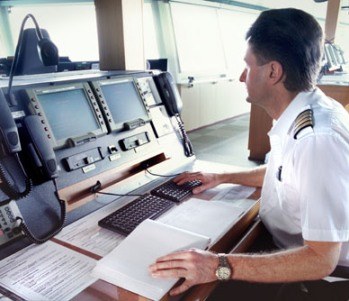
12. A Copy of Recruitment and Placement Service Certificate Should Be Available Onboard : As per MLC a copy of agreement between the owner and RPS Company should be available on board and the manning agency should follow the guidelines of MLC-2006 and national labour laws for recruitment. In case of ownership employment a licensed manning agency is not required, provided that owner has to recruit as per MLC – 2006 and national labour laws recommendations.
13. Prepare For Crew Interview: It is the most important and critical aspect of MLC inspection. All crew from top to bottom will be interviewed. The inspector will ask the crew (rating) regarding working condition, food, treatment, facility on board and the surveyor will probe the crew if he/she is satisfied and happy with wages paid. Apart from this, crew should be aware of their SEA, CBA etc. He will also emphasise on knowledge of crew regarding safe work practices, pollution regulations or anything related and applicable. For successful crew interview the master can arrange a meeting prior inspection and can give his advice and prepare the crew for inspection, (personal opinion) but not a necessity.
14. Ensure proper Housekeeping and Cleanliness of Accommodation, Galley and Mess room: Inspection of House Keeping and hygiene, galley, mess room, dry and perishable provision stores, reefers, cabins and common toilets will be made by the MLC auditor. All these places should be neat, tidy and hygienic. It is always better to double check the toilet flushes and lights on cabins and in accommodation area, because this might result in huge Non-conformity if these items are faulty.
The inspector might also ask regrading recreation facilities available onboard ships. He would also check medical supplies for on board medical care of seafarers and if the person responsible for medical care is trained properly or not.
15. All Important Certificates Must Be Available for Inspection: Copies of medical chest certificate, deratting certificate, safety construction, crew accommodation certificate, ship’s registry, continuous synopsis record etc. have to be available for MLC auditor’s reference. Also make sure the IMO publications and other required documents are present onboard at the time of survey.
Mentioned above is not an exhaustive list, but some of the most important points that must not be forgotten at the time of MLC 2006 Survey.
Do you know any other important point that must be added to this list? Let us know in the comments below.
More Articles on Maritime Labour Convention:
Full Stream Ahead For the Maritime Labour Convention
A Guide to Maritime Labour Convention, 2006
You may also like to read – 10 Important Points of Useful Information For Seafarers
Do you have info to share with us ? Suggest a correction
Latest Maritime law Articles You Would Like:
Latest News
- What is the Purpose of DG Shipping?
- What are Logistics Risks?
- How Port and Terminal Operators Can Control Emissions?
- Minimum Quantity Commitment (MQC) and Liquidated Damages in Container Shipping: Concept and Relevance
- MARPOL (The International Convention for Prevention of Marine Pollution For Ships): The Ultimate Guide
- The Ultimate Shipping Container Dimensions Guide
Subscribe To Our Newsletters
By subscribing, you agree to our Privacy Policy and may receive occasional deal communications; you can unsubscribe anytime.




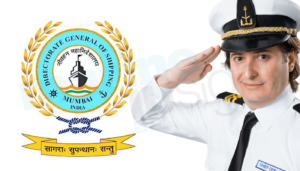

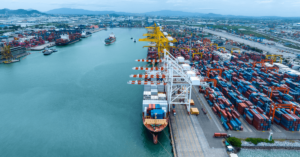
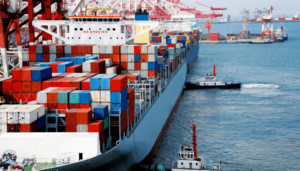
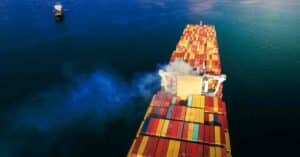


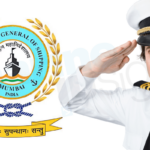

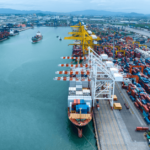



thanks marine insight
I have been through two MLC audits as Master of LNG ships – on both occasions the surveyor asked about facilities for shore leave, even asking if senior officers were permitted shore leave, and did they actually go ashore. Crew welfare is top priority for MLC.
Excellent discussion . I learned a lot from the details – Does someone know where I might be able to get ahold of a sample Citizens Insp4pt document to fill out ?